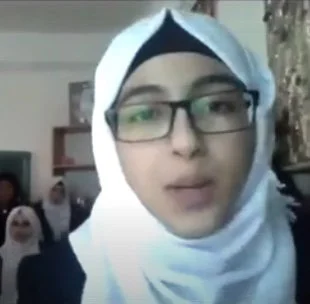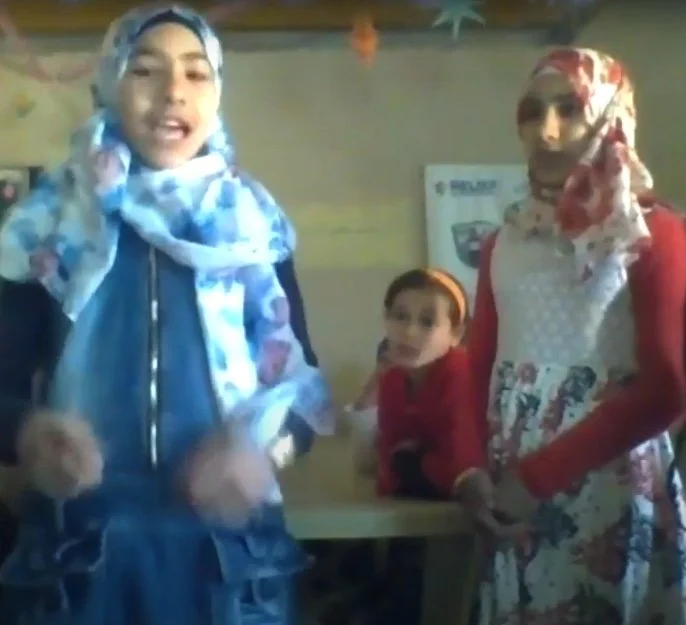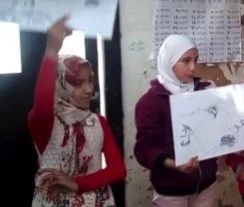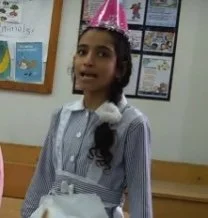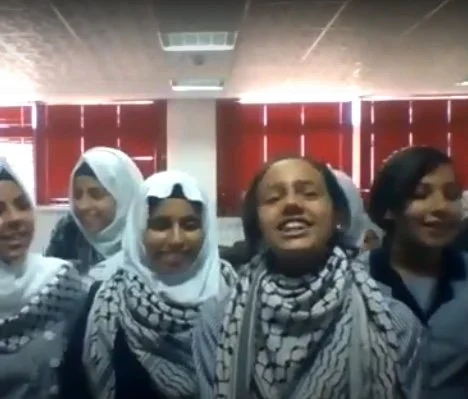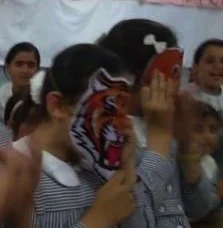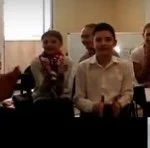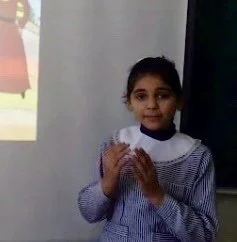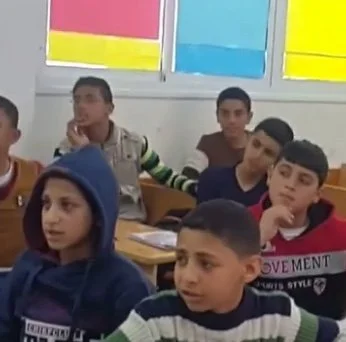This week another Hands up project volunteer, SIBEL KARATAŞ, a teacher of Turkish and English based in Berlin writes about her experiences working with a large girls group in Hebron, Occupied Palestine…
Read MoreThis week we have something rather special - a guest post from Jane Willis. Jane has been a supporter of the Hands Up Project for a long time and is on the advisory panel - offering us support in bringing task based learning into the work that we do. Over to you Jane....
Read MoreI’m very proud of what the Hands Up Project has achieved in the last 2 years. We now have around 15 different groups of children in Palestine, Jordan and Pakistan (some quite small and some with up to 80 participants!) and we're connecting to them each week to do online sessions.
Read MoreIn 1990, when I first took some training to be a teacher of English as a foreign language, we were strongly encouraged to use the PPP (Presentation, Practice, Production) framework for planning lessons. Here's a reminder of how it works...
Read MoreI've always been very keen on information gap activities; the kind of thing where students work in pairs and where one student has one set of information and the other student has a different set and they have to communicate to somehow pool what they know. The classic example of this is 'Spot the differences'.
Read MoreWe have another guest post this week - this time from not just one teacher but two! Alexandra Guzik, teaches English at the Follow me to English school in Krasnodar, Russia and Sahar Salha teaches at the Elementary co-ed “A” UNRWA school in Beit Hanoun, Gaza. This post is about a really nice cross cultural learning experience that they set up through the Hands Up Project.
Read MoreA few years ago I attended a really interesting talk by Jane Willis at an IATEFL conference somewhere. The talk was about using task based learning in challenging circumstances, and there was a point when one of the teachers in the audience was telling everyone about her particular challenge of trying to get learners to use English (rather than mother tongue) to do group work tasks in the large classes of low level learners that she taught.
Read MoreThis week we have a guest post from Henritte Sudah, who teaches English at Zababdeh girls secondary school, Jenin, Palestine.
Read MoreOver the past two months, along with doing lots of online sessions myself, I've been running several series of online training sessions with dedicated teachers in many different places around the world, who have given up their time to volunteer with the Hands Up Project.
Read MoreI've been so busy lately I haven't had much time for blogging, but this week we've got something special - a guest post from Amal, an English teacher who works with teenagers at the UNRWA school in the Khan Younis refugee camp, Gaza.
Read MoreDespite all the hype about learning styles in recent years, it's a well known fact, backed up by research, that our ability to remember images outperforms our ability to remember other forms of data, such as written words, sounds, or smells. In one study, cited in Medina (2008), people were shown 2500 different images - each one for just 10 seconds.
Read MoreTeacher's aren't doctors but sometimes we're made to feel like we are :-) I was at a conference recently and a teacher came up to me with a wry smile on her face. 'I have a problem,' she said. 'You know that chant you did in your workshop last year? It goes like this ...Juha! Juha! What are you going to do? The cat came home and ate the meat and nothing's left for you!
Read MoreThe difference between theatre and classroom drama is that in theatre everything is contrived so that the audience gets the kicks. In the classroom, the participants get the kicks.'So how can second language learners benefit from performing in a play?
Read MoreLast Saturday we had a rather special zoom meeting between Sahar Salha's class at the Elementary co-ed “A” UNRWA school in Beit Hanoun, Gaza and Alex Guzik's class of kids in Krasnodar, Russia.It started with the Russian children performing their own excellent interpretation of the traditional Palestinian story, The Farmer who followed his dream.
Read MoreMost of what I'm doing in my online sessions with kids uses material from here but this week I want to focus on something a bit different. One area of storytelling that I haven't really looked at so far with these posts is working with picture books. With very young learners especially, I've often felt that if all teachers ever did was tell their kids stories from these books, then something very useful would be going on.
Read MoreAs a teacher and teacher trainer, this has been an area of interest of mine for a long time, and it's something that I thought about a lot when I was writing Memory Activities for Language Learning. In my talk I'm going to be focussing on the conflict that exists between teacher training programmes and exam systems in many parts of the world
Read MoreUsually when I write this weekly blog post I share it first with the various Palestinian teacher and teacher trainer groups that I belong to on Facebook, before sharing it elsewhere. I do this because it is this kind of audience that this blog is intended for. I want this to be a space where teachers who work in contexts like these can get new ideas, where they can download resources, and where they can discuss and share ideas about what happens in their own classes.
Read MoreTwo weeks ago I wrote a post called 'The Game of Jewels' about the strength of activities like Kim's Game, which emphasise the importance of noticing and retrieval. I said that most of my favourite things to do in class are really just adaptations of Kim's Game so, as promised, here's a version which uses the same principles, but which is more suited to teenage learners.
Read MoreSometimes when we think of drama we think of Shakespeare, or we think of complex archaic language, or we think of struggling to feel the motivation for a particular line, or if, like me, you went to primary school in Britain in the 1970's, you may think of standing for what seemed like hours and being a tree!But drama as a tool for teaching English as a foreign language to young learners can be a much more straightforward and down-to-earth matter.
Read More
